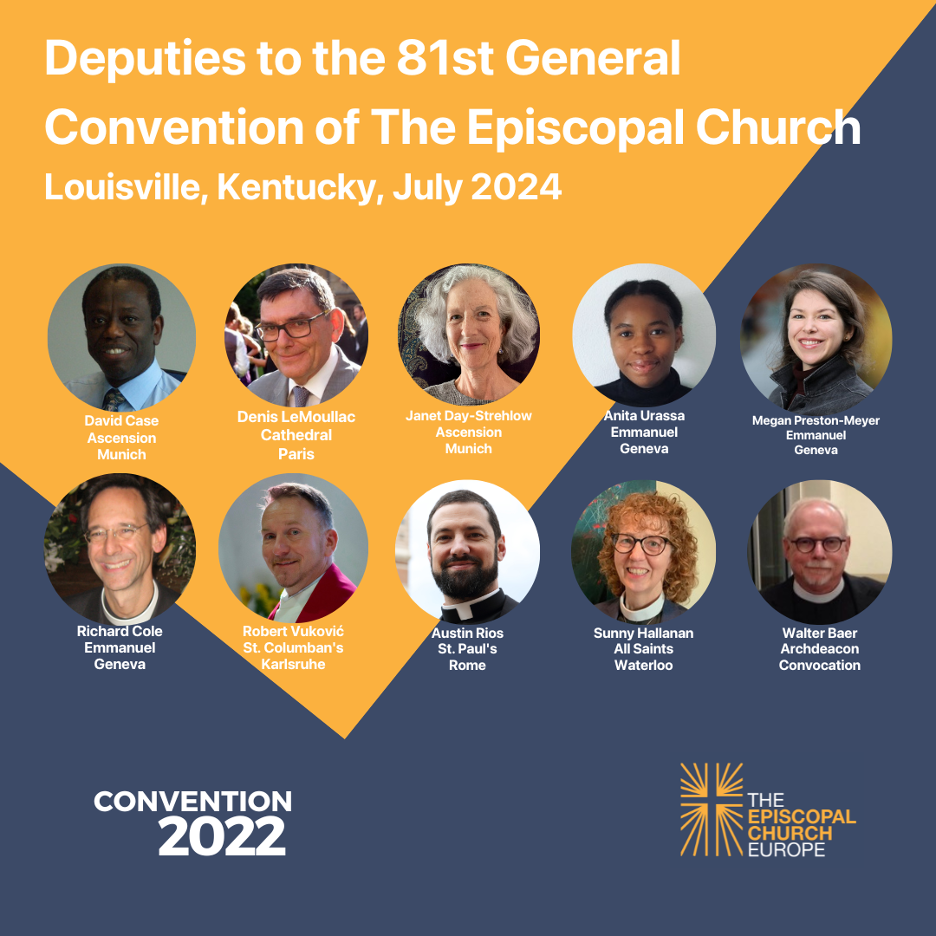THE CONVOCATION'S DEPUTATION to the 81st GENERAL CONVENTION in Louisville, kentucky, USA
June 23 - 28, 2024 in Louisville, Kentucky, USA

|
Lay Deputation |
Clergy Deputation |
At its founding in the 1780s, when the Episcopal Church became separated from the Church of England due to US-American independence from England, the newly independent "Protestant Episcopal Church in the United States of America" (now known as "The Episcopal Church") ratified a constitution that included certain provisions that would shape its governance: A conviction that elections to choose its leaders should be required at all levels of the church's life, and that, as in the first centuries of the church, Bishops would be elected.
The nascent Episcopal Church sought to uphold the tradition of local autonomy that had developed in the earliest expression of the American church. Specifically, the classic church hierarchy of deacon - priest - diocesan - archbishop ends at the diocesan level. Instead, the authority that is traditionally vested in an archbishop is instead vested in an elected body, The General Convention of the Episcopal Church.
The General Convention is the highest governing body of The Episcopal Church. This bicameral legislature includes the House of Bishops and the House of Deputies. The Presiding Bishop, The Most Rev. Michael B. Curry, elected in 2015, is the chair of the House of Bishops. The current President of the House of Deputies, Ms. Julia Ayala Harris, a lay deputy from the Diocese of Oklahoma, was elected in 2022. The two bodies meet and act separately, to set the Episcopal Church's mission priorities, budget and policies. Both Houses must concur to adopt legislation. Bishops and Deputies from 111 dioceses and jurisdictions from 17 countries now are part of the General Convention.
The Convention has the authority to amend the Constitution and Canons of the Episcopal Church; adopt the budget for the church for the next three years; authorize liturgical texts and amend the Book of Common Prayer; adopt communions and covenants with other churches; set qualifications for orders of ministry and office-holders; elect officers of the General Convention, the Executive Council, and members of boards; and delegate responsibilities to the committees, commissions, agencies, and boards of the Episcopal Church.
The General Convention meets every three years. In between conventions, an elected body, the Executive Council, meets to address concerns and carry forward the policies and programs adopted by The General Convention. The Convocation is represented at General Convention by the Bishop in Charge, and four lay deputies and four clergy deputies; one lay and one clergy alternate deputy also attend.

|
Lay Deputation |
Clergy Deputation |